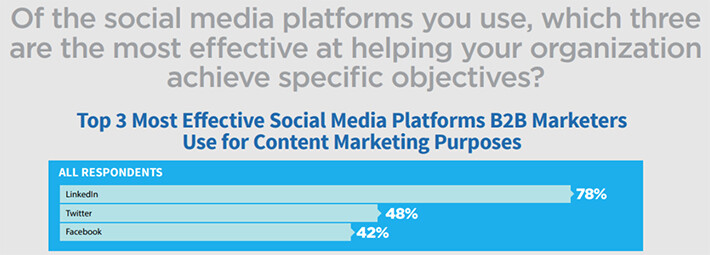This post intends to be a quick introduction to some negotiation basics. It was mostly written for myself, but may be of use to others
Most importantly, negotiation is often not just about getting something for the lowest price. You will have the most success if you are able to find value for both parties.
1. Agenda
In order to get what you want, you either want to be the one leading the negotiation, or at least an equal. This does absolutely not mean that you should talk too much!
You should try to match the counterparty’s people count. If they come with two then you come with two. There should be at least one person taking notes. Some people prefer to have two sets of notes: one general to be sent to the counterparty and one private.
If viable in your situation, prepare a short agenda:
– Opening (who, what)
– Getting everyone up to date if necessary
– Negotiation
– Closing, hand shaking
2. Preparation
Preparation is 80% of the negotiation.
It is EXTREMELY important to have as much information as possible about the thing you are negotiating, and who your opponent is. This is triple as important when you have multiple people on your ‘side’, as disagreement during the meeting can be fatal. Some questions that may help:
What do i want from this negotiation:
What exactly do I want
How do my interests rank in importance:
Very important. Many people have the tendency to want either a lot of things, or too little. Have some interests, but it may be worth to have some interests that you would easily give away. Be very clear on this ranking with your team.
What are my strengths?
What can i offer that others can’t. Why does the other person need me specifically.
What are my weaknesses
What can be used against me. Where am i less good of a choice than others, what am i missing
What do i have that the other party needs
If not, don’t worry yet if you are able to realize it on a short term. If you have no chance of offering what the other party needs, do not lead them on and ruin your reputation. Keep in mind that what they say they want and what they need may differ.
What is each party’s BATNA
Best Alternative To a Negotiated Agreement. If you can’t reach a conclusion, what backup do you have?. This is a huge factor in how hard you can push and what terms you can set.
You should not be scared to walk away from a negotiation if you get a bad offer. A bad deal will hurt you more in the long run. You may be able to get called back after walking away once, but don’t expect this to happen.
Do not reveal your batna right from the start, but for example when you see that you have reached an impasse. BATNA can also be a great form of leverage. Do not use it badly, but instead frame it as helping find a good outcome. DO NOT BLUFF, this will almost always end up hurting you. Position it as an oppertunity for a win-win outcome.
Stay flexible and open to negotiation. Be willing to slightly adjust. Prepare for counteroffers or to explain/explore the gap. Evaluate the response to your BATNA
How high do i want to anchor
Anchoring is a magic trick that any good negotiator will use. Keep in mind the counterparty will also likely use this against you. Anchoring means taking the Highest price the counterparty would likely accept, and add 30% to that. Humans have the tendency to make things relative, and now you pushed the average in your negotiation discussion up to a more preferred range for you.
In what way can i make a good deal for both parties? (increase the pie)
You usually have more to negotiate on than just money. What can you do to offer more value to the other party? You can often increase the value of a deal by more than it’s monetary cost.
What’s your ZOPA
Zone of possible agreement. Both parties have a rough minimum and maximum price range. The ZOPA is the range where this overlaps. ZOPA’s can move a bit depending on what additional value is offered, but be aware that you shouldn’t move it too much for it to become a bad deal. While you may give rough hints about your ZOPA when you are not moving in your negotiation, you should never give clear limits.
You might also see the term Reservation Point, which is the point in the negotiation where a deal is no longer profitable to you.
What’s your information
It’s very important to have as much information as possible: What are we talking about, how’s the market. If your counterparty sees you do not know what you are talking about, this will cost you dearly. Make sure that information is equal between team members.
Who are you up against
Hierarchy of goals. The person who you are talking to may have different KPI’s than the company, or than the final person deciding.
Recognize if your countertparty is a hard negotiator. You can usually already see this from their title and years of experience, but be ready to adjust this during the negotiation.
3. During
If the counterparty comes to your ‘home base’, see if you can have some smalltalk beforehand. Offer them a coffee. Reciprocity is persuasion 101.
Some tips: Watch your and the counterparty’s emotions. Become very aware of nonverbal communication of your counterparty, but also your own. Do not fiddle, sit upright take active notes if possible.
Prefer in-person meetings over online, as a lot of nonverbal information gets lost.
Look dependable. Humans hate one thing the most: risk. If you seem like a person they can depend on, you already take away half of their problems.
Ask questions! Every question makes your counterparty give away more information that you can use against them or to create more value!
You are *hopefully* well prepared. Make the best of it!
4. Ending
Independent of if you come to an agreement, stay friendly. You may have to talk to this counterparty again, and a friendly party will get way better deals in the future.
Importantly: talk about next steps and rough timeframes. This will make a clear path forward to round off the deal.
5. After
Todo: Finish this post
Send the counterparty notes, plan a new meeting to look at progress. Look proactive, friendly. You will hopefully deal with them more often!
Want to know more? https://www.karrass.com/blog/batna looks like quite an interesting read.
Some interesting books are:
– Getting to Yes: Negotiating Agreement without Giving in
– The psychology of persuasion

